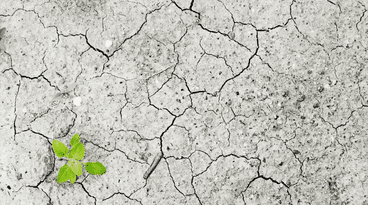WHO / Europe: New climate change country profiles show key health risks and priority areas for action in European Region
Climate change affects everybody across the world, but each country may face different effects in various ways. To address this threat, national authorities need information on the specific climate hazards they are already facing, the ones that will come in the future, and the opportunities to mitigate climate change impacts. For that reason, WHO and the United Nations Framework Convention on Climate Change (UNFCCC) have launched the Health and Climate Change Country Profile initiative for monitoring national and global progress on health and climate change.
Last year, countries of the European Region witnessed many extreme weather events directly linked to the changing climate, from floods to wildfires and heatwaves, which directly and indirectly impact people’s health and health systems. The climate-related health emergencies in the Region are expected to become even more frequent and intense due to climate change.
The Health and Climate Change Country Profiles give an overview of critical areas for action to combat these threats, and provide links to available resources. Developed in collaboration with national health services, they summarize evidence of the climate hazards and health risks facing countries. They track national progress in addressing the health threats from climate change and highlight opportunities for gaining health benefits from climate mitigation action.
WHO published the country profiles of the first group of participating countries from the European Region for the current 2021–2022 global series. A few highlights from the 6 new country profiles are:
- Bulgaria: The population exposure to heat stress is likely to rise due to increased urbanization (and the associated urban heat island effect) and climate change increasing the likelihood of severe heatwaves.
- Czechia: Climate change increases the intensity and frequency of extreme weather events, including drought and floods. These events can lead to population displacement, affect water and sanitation infrastructure and services, and contaminate water with faecal bacteria (from run-off or sewer overflow).
- Iceland: Rising sea levels can lead to storm surges, coastal erosion, saltwater intrusion of groundwater aquifers and ecosystem disruption. These events can lead to population displacement and affect water and sanitation infrastructure and services, including with water contamination.
- Israel: Due to climate change, the total annual precipitation could decrease by about 25% by the end of the century. Freshwater scarcity is a constant reality in Israel. The permanent challenge is to close the gap between the demand and the available natural water resources. Israel has addressed its water challenges by adopting a sustainable water management approach and by developing advanced technologies for desalination and wastewater treatment.
- Malta: The country has a water shortage problem. The government has committed to a range of adaptation actions to protect water security in Malta, which climate change threatens. These actions include a range of measures such as borehole monitoring, building rainwater catchment measures, recycling wastewater for irrigation purposes and restricting the use of groundwater resources.
- Slovakia: Climate change is already affecting vector-borne disease transmission and spread, and its impacts are likely to worsen. As a result, population exposure to vector-borne diseases could also change. Populations not previously exposed to certain vector-borne diseases could be increasingly exposed in the future as rising global temperatures shift the distribution of vectors.
Over 80 countries have participated in the Health and Climate Change Country Profile initiative since it began in 2015. More European Region country profiles (Belarus, Croatia, Cyprus, Finland, Georgia, Germany, Hungary, Lithuania, Romania, Sweden and Turkey) are in development and will follow shortly.
For more information:

